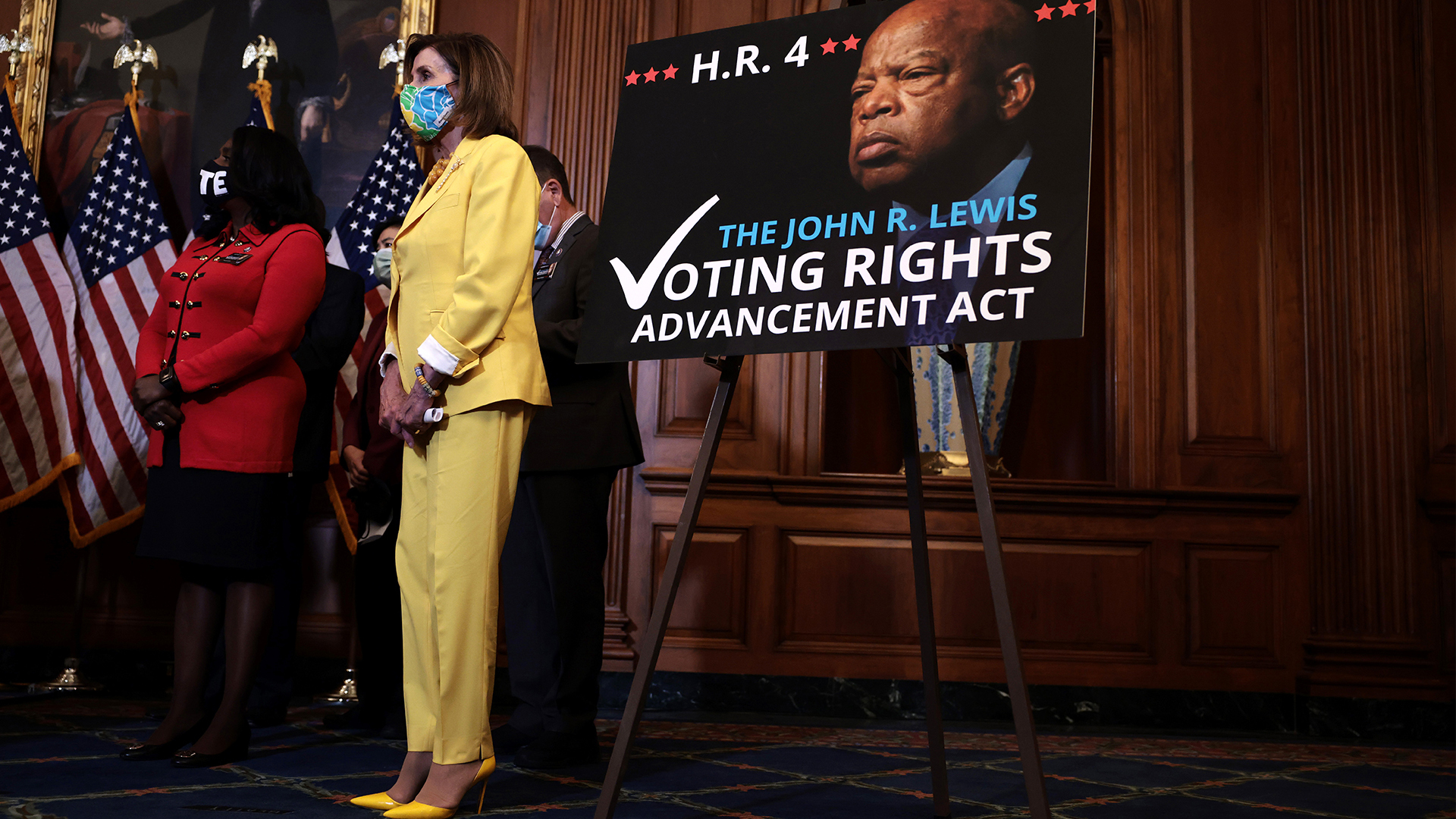On Thursday, the U.S. House of Representatives passed the John Lewis Voting Rights Advancement Act and the Freedom to Vote Act. CNN reports that the House voted to combine the two proposals into a single measure that was then passed by the chamber. The combined bill now goes to the Senate, where the passage of these voting rights protection measures is expected to be an uphill battle.
Culmination of months of efforts
The bill named after the late Rep. John Lewis, a civil rights icon and longtime congressman from the state of Georgia, seeks to restore measures of the Voting Rights Act of 1965 that were nullified by a 2013 Supreme Court decision. Specifically, the act would create a new formula for preclearance, the policy by which states and localities with a history of discriminatory voting policies would have to get prior approval from the federal government before making changes to voting laws. The preclearance provision was an important protection for Black and other minority voting rights in the Deep South and other parts of the country, and its removal in 2013 was followed by a slate of repressive voter restrictions in a number of states. Meanwhile, the Freedom to Vote Act establishes national standards that would guarantee access to options such as early voting and mail-in voting. It also makes Election Day a national holiday and puts in place measures to limit long voting lines.
For months, voting rights activists and Democratic legislators have been urging Congress to pass both the John Lewis Voting Rights Advancement Act and the Freedom to Vote Act as crucial legislation necessary to protect voting rights in the country. The combined Freedom to Vote: John R. Lewis Act, containing the measures of both previous bills, passed the House along party lines in a 220-203 vote. The bill now passes on to the Senate, where several previous attempts to pass voting rights protection died in 2021, as Republicans used the filibuster to block a vote on the legislation.
Senate showdown to follow
As The New York Times reports, the passage of the combined bill is part of a Democratic plan to move the legislation forward over the objections of Republicans. Senate Majority Leader Chuck Schumer plans to use a procedural rule to force the Senate to debate the text of the bill, which has previously been blocked by a Republican filibuster. Though Schumer’s move will not directly prevent Republicans from filibustering the final passage of the bill after the debate has ended, it will allow Democrats to alter the filibuster rules, which could then allow the bill to be passed by a simple majority vote without any Republican support. This option would need the support of all 50 Democratic senators, including Kyrsten Sinema and Joe Manchin. The progressive media platform Democracy Docket recently broke down the plan in a series of messages on social media.
????BREAKING: Senator Schumer announces plan to push through filibuster and proceed with voting rights legislation using a procedure known as "messages between the Houses" in a caucus memo.
Here's what you need to know????????
— Democracy Docket (@DemocracyDocket) January 12, 2022
Although all 50 Democratic senators support the legislation, two Senate Democrats — Joe Manchin of West Virginia and Kyrsten Sinema of Arizona — oppose eliminating or moderating the filibuster rules to allow the legislation to pass by a simple majority vote. Attention has therefore been focused on pressuring or convincing Manchin and Sinema to support filibuster reform, and the Biden administration has been criticized for not exerting more pressure on the two conservative Democrats.
Reflecting sentiments that many progressive Democrats have expressed for some time, Rep. Cori Bush
released a statement declaring that “the American people have done their part by delivering the House, Senate, and White House to Democrats,” referring to the 2020 election cycle. “Now Democrats, every Democrat, must make good on our promise to deliver for the people,” she added. Making her appeal to “every Democrat” more explicitly, Bush’s statement then directly called out Sens. Manchin and Sinema, asking if they will “stand with the people and generations of Black leaders, activists, organizers, and agitators who have marched, bled, and died to secure our right to vote” or side with “the white supremacists who are working to deny voting rights to millions of Americans.”
As Blavity previously reported, President Joe Biden and Vice President Kamala Harris urged passage of the voting rights legislation and the necessary filibuster reform during impassioned speeches delivered at Atlanta University Center Consortium, a joint venture of several HBCUs located in the district once represented by John Lewis. CNN reports that Biden is spending Thursday on Capitol Hill meeting with the Democratic Senate caucus in an effort to convince the two holdout senators to put the filibuster aside for the voting rights vote.
Movement on the bill is expected to happen quickly. Sen. Schumer previously set Monday, Jan. 17 — Martin Luther King Jr. Day — as the deadline for holding a vote in the Senate on changing the filibuster for the voting rights measures. This target coincides with a call from Dr. King’s family that this year’s MLK Day be dedicated to urging Biden and Congress to pass voting rights protections. With this deadline now firmly set up by the advancement of the Freedom to Vote: John R. Lewis Act, MLK Day 2022 is shaping up to be either a momentous victory or a stinging setback for the continued fight for voting rights in the country.
